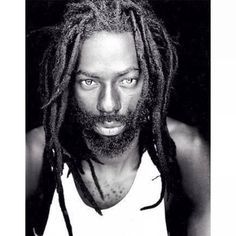The lyrics of Freddie McGregor's Big Ship rocked out in my head as I boarded the massive Norwegian Pearl cruise liner. It was a rainy Saturday afternoon in South Beach Miami. The lyrics were particularly fitting as I was about to embark on the second annual Jamrock Cruise -- A massive reggae party lasting five days; spanning from Miami to Falmouth, then to Ocho Rios, then back to Miami.
The musical line-up was a thing of legends: Supercat, Bounty Killer, Capelton, Junior Gong (my current favourite), Stephen Marley (my fast up-and-coming favourite), Cham, Spragga Benz, Ky-Mani Marley, Third World, and many more.
The vibrations signified that it would be a trip for the ages. Kindred spirits, black, white, and everything in-between rocking to cries of "One love", "Chant down Babylon" and "Resist the system" as we traversed the Caribbean Sea.
The actor Malik Yoba (see Empire) even took the stage to show one of the all-time legends Sir Barrington Levy some love; however, with each cry of "Free Buju" -- and they came frequently-- from various artistes, I couldn't help but feel that there was a tremendous irony and lesson to be learnt.
The first time I heard the word "deportee" was at VP Records in Queens, New York. It was during a Saturday morning pilgrimage (some time in 1993) with my stepdad to buy records. I first heard the unmistakeable voice of Buju Banton singing his hit Deportees (Things Change). Buju, clearly ahead of his time, was able to give language and meaning to a social issue that had yet to truly develop into the monster it is today.
More than two decades later, the popular perception of a deportee in Caribbean communities today still mirrors closely that of Buju's hit song -- living the high life in a foreign land, fuelled by drug money or other illegal activities; no regard for the suffering and poverty back home, then to have it all disappear when you get arrested, convicted, imprisoned, and ultimately deported, "Back together, again, mi baby fren" was the not-so-kind homecoming Buju warned for the deportee.
But what if this perception is wrong? What if most (keyword) deportees are nothing more than victims of the continued human, social and economic oppression of black and brown people in America perpetuated no less through the insidious system of mass incarceration? What if?
Sankofa is a terminology I first heard while visiting West Africa. It implies that to go forward you must sometimes go back. With that said, allow me to take you back to a not too distant past, one with significant implications for the deportee conversation in Jamaica.
The Thirteenth Amendment to the United States Constitution, in 1865, is often recognised as the law ending slavery in America. It made slavery unconstitutional "except as punishment for crime whereof the party shall have been duly convicted" (US Const. amend. XIV). Immediately after Emancipation, "black codes" were passed that essentially criminalised all facets of black life in America.
The newly freed blacks could be arrested for looking whites in the eye or simply walking on the same side of the street; they would further be arrested for homelessness, unemployment, or for having occupations outside of those involving servitude to whites (see The New Jim Crow by Michelle Alexander).
Once arrested, and subsequently convicted, most of these people would be leased out, aptly named "the convict leasing system", to the same plantations from which they were just freed. The brutality and workload was now even more intense as they were now convicts -- lawbreakers, disposable, occupying a social position even beneath that of a chattel slave.
The black codes created a boom in the prison industry, precipitating the birth of mass incarceration in the United States. They also served as the catalyst for "neo-slavery", as the great African American historian W E B Dubois noted.
If you have enjoyed reading BuJu and The Deportee thus far, please click on the link below to read the article in its entirety:

